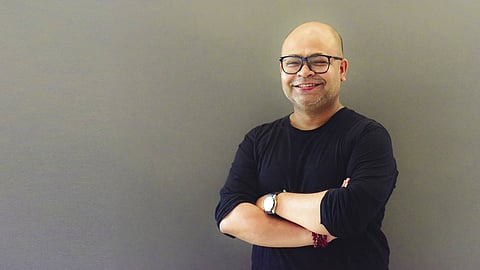How THIP gives credible health information
We recently saw how the inimitable rock star, Neil Young, withdrew most of his music from Spotify to protest its hosting Joe Rogan’s disinformation-spreading podcasts about Covid vaccines. “While the Covid-19 pandemic has been tackled bravely by medical frontline workers, the infodemic (misinformation during the pandemic) has wreaked havoc on us. We are not just fighting an epidemic; we are fighting an infodemic,” says TA Ghebreyesus, director general of the World Health Organization (WHO).
An August 2020 report by the American Journal of Tropical Medicine and Hygiene states that around 800 people died due to misinformation alone in the first three months of the pandemic.
In this context, The Healthy Indian Project (THIP), a healthcare information start-up in India, has been fighting the infodemic in the healthcare space. THIP is a signatory of the International Fact-Checking Network (IFCN) a global body that validates and certifies fact-checkers across the world. It advocates factual information in the global fight against misinformation and promotes the excellence of fact-checking at more than 100 non-partisan organisations worldwide.
THIP was founded by Sudipta Sengupta. He is the CEO and is a digital product management professional who has built multiple digital products and communities at news portals. Around 2018, Sengupta, then a digital media head at a national media house, woke up to the sad news of the demise of a friend. “Rushing to his house trying to find out what actually happened I learned he had been keeping unwell for quite a few months, consulted multiple doctors but chose to stick to self-medication mostly the knowledge of which he acquired through online searches. Being a private person, he chose not to discuss his health issues outside the family. Family members too had their own share of diet and alternative medicine suggestions – all based on hearsay. He did finally go to the hospital to have an operation but things were much more complicated by then,” remembers Sengupta. The death left a long-lasting impact on his mind.
A dangerous trend
“This also got me thinking,” says Sengupta. Even in urban cities of India where you get access to medical facilities, access to medical information has been limited. And we are the only ones to blame. We believe in online search, age old rituals, neighbours’ advice and third person personal experiences – none of which are medically validated. “It’s sad. But that’s how most of us behave as far as health decisions are concerned till the point the pain is unbearable”.
THIP Media is a verified signatory of IFCN and works with tech platforms like Facebook and WhatsApp to tackle health misinformation. “We have fact-checked over 1,200 cases of health misinformation over seven Indian languages during the pandemic,” says Sengupta. THIP is more than a fact-checking platform. With the primary aim to improve the quality of patients’ participation in the treatment procedure, it has three verticals – THIP Media, THIP Academy and THIP Care. While Media and Academy focuses on improving health literacy, Care focuses on making healthcare services available to underserved areas of the country.
The platform runs a WhatsApp chatbot called RAKSHA, an acronym for Readily Available Knowledge and Support for Health Action, that answers all health questions and fact checks all health information for free. RAKSHA receives around 2,000 messages per day. When RAKSHA knows the answer, it replies automatically. When RAKSHA does not know the answer the team of doctors and fact-checkers at THIP tries to find an answer within 24 hours.
“We have a database of 10,000 plus questions over 80-plus health conditions and over 1,500 fact checks. Yet, we often get questions that the team has to manually reply to,” says Sengupta. “This keeps the database growing but at the same time shows the need people have to get their queries related to health answered”.
While the company earns from corporates and individuals THIP invests a part of its income for the underserved regions of the country. “We invest 5 per cent of our earnings for these activities. Eventually, it’s people who are taking care of people. That’s how we want to grow,” says Sengupta who started with a small capital of Rs8 lakh pooled from his personal savings and contributions from friends and families.
“We had some initial interest from some angel investors who have known me from my corporate days. Maybe we will raise capital in the future when we want to scale up fast. But as of now, we are experimenting with newer models that we want to test,” says Sengupta. “We have achieved a revenue of Rs1.4 crore last year and this year we plan to grow by 38 per cent,” adds he.

